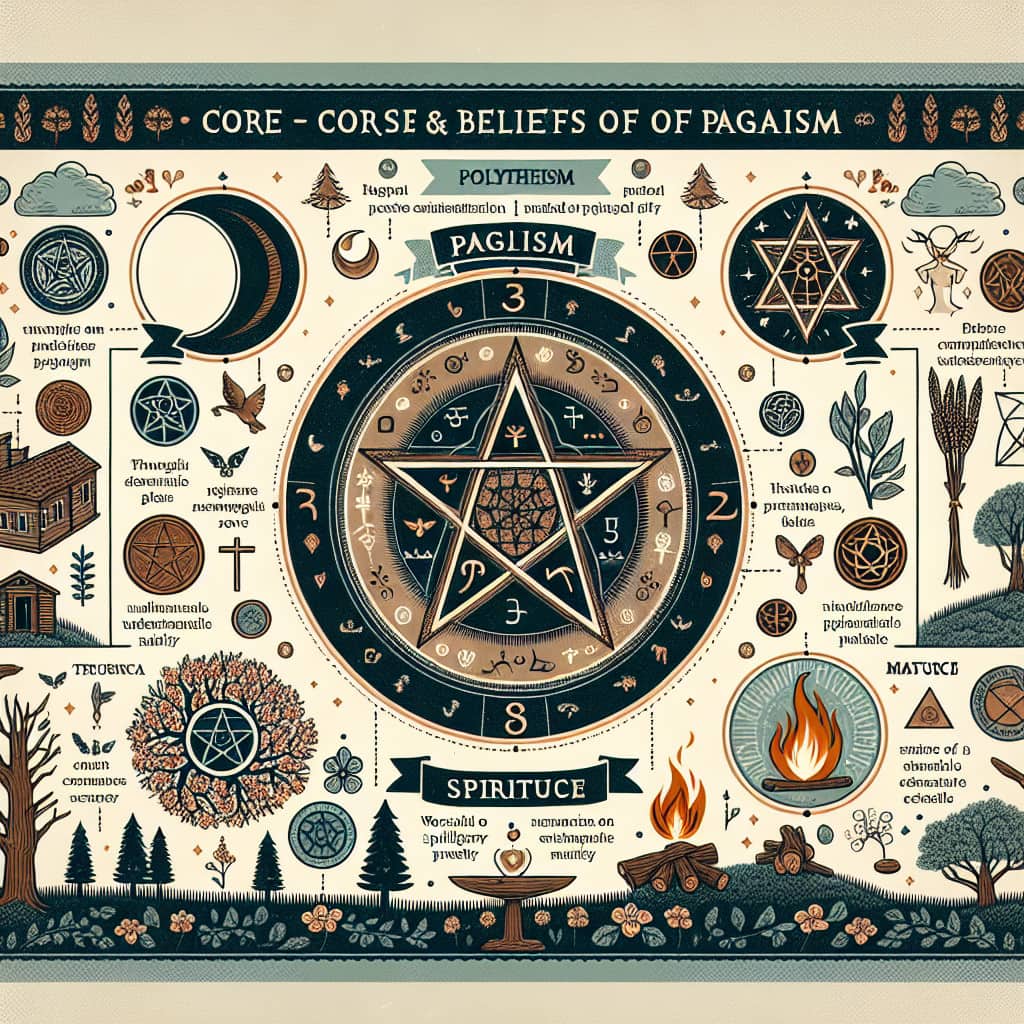Paganism is one of the oldest forms of spiritual beliefs, but today it is often misunderstood or seen as something mysterious. In this article, we will explore what pagan beliefs are, where they come from, and what they mean for those who practice them. We will look at some of the common elements of paganism, including its pantheistic nature, the importance of rituals and ceremonies, and the emphasis on nature and the environment. We will also discuss how paganism is practiced today and how it can be incorporated into modern life. Finally, we will discuss the dangers of misrepresenting pagan beliefs and how we can better understand and respect them.
Paganism is an umbrella term that encompasses many different spiritual and religious practices, beliefs, and cultures. Though it is often associated with Wicca, a form of witchcraft, there are many different paths that can be considered pagan. Here we will explore what pagans believe and the variety of beliefs, practices, and cultures that make up the umbrella of paganism.
What is Paganism?
Paganism is an umbrella term used to refer to a variety of spiritual and religious practices, beliefs, and cultures. It is a polytheistic, nature-centered spiritual path that honors the Earth and its inhabitants, and is often associated with Wicca and witchcraft. Paganism is practiced by many different cultures, and the beliefs and practices may vary greatly from one group to another. In general, however, pagans believe in a deep connection with nature, the interconnectedness of all things, and a reverence for the divine in all aspects of life.
Pagan Beliefs
Pagan beliefs are varied and diverse, but there are some core beliefs that are shared among most pagans. These include:
- A deep connection with Nature. Pagans believe that all life is interconnected, and that nature is sacred. They view the natural world as an expression of the divine and an extension of their spiritual practice. They also believe in living in harmony with the Earth and its inhabitants.
- The interconnectedness of all things. Pagans believe that all living and non-living things are interconnected and that every action has an effect on the whole. This belief is often expressed through the concept of karma, which holds that our actions have consequences.
- The divine in all things. Pagans believe that the divine is present in all things, both living and non-living. They view the divine as an ever-present and ever-changing force that is expressed through nature and the universe.
- The importance of honoring the cycles of life. Pagans believe in honoring the cycles of life, from birth to death and everything in between. They view life as a journey that should be celebrated, embraced, and respected.
- Personal responsibility. Pagans believe that each individual is responsible for their own actions and the consequences of those actions. They also believe in taking personal responsibility for their own spiritual path and for their own spiritual growth.
Pagan Practices
Pagan practices are as varied and diverse as the beliefs, but there are some common practices that many pagans engage in. These include:
- Worship and ritual. Pagans often engage in worship and ritual to honor the divine in all things. These rituals may involve the use of music, dance, meditation, and offerings to the gods and goddesses.
- Spells and divination. Pagans may practice spells and divination, such as tarot readings, astrology, and other forms of divination. These practices are used to gain insight and to manifest desired outcomes.
- Nature-based spirituality. Pagans often practice nature-based spirituality, such as honoring the cycles of the moon, celebrating seasonal holidays, and connecting with the energy of the Earth. They may also practice shamanism, which involves connecting with the spirit world through rituals and ceremonies.
- Community. Pagans often gather in groups to practice their spirituality and celebrate the cycles of life. These gatherings may involve rituals, festivals, and other celebrations.
Conclusion
Paganism is an umbrella term that encompasses many different spiritual and religious practices, beliefs, and cultures. Though there is no single belief system that all pagans adhere to, many pagans share some core beliefs and practices, such as a deep connection with Nature, the interconnectedness of all things, and a reverence for the divine in all things. Pagans often engage in worship and ritual, spells and divination, nature-based spirituality, and community gatherings. Ultimately, paganism is an individual spiritual path and each pagan will have their own unique beliefs, practices, and rituals.
In conclusion, it is clear that Pagan beliefs are varied and complex. However, there are some common threads that bind them together. These include a reverence for nature, a belief in multiple deities, and a focus on personal spiritual growth. Furthermore, Pagans are united in their belief that each individual has the power to shape their own destiny. Ultimately, Pagan beliefs provide a powerful and meaningful way to explore the spiritual world.





